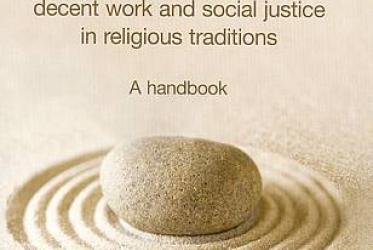Displaying 41 - 60 of 179
Youth eco-justice efforts expand
12 October 2012
Altmann bekräftigt Zeichen der Hoffnung in der ökumenischen Bewegung
03 September 2012
Altmann affirms signs of hope in the ecumenical movement
29 August 2012
WCC forum issues a call to promote “economy of life”
22 June 2012
WCC forum focuses on poverty, wealth and ecology
19 June 2012
Working together for social justice and decent work
23 January 2012





